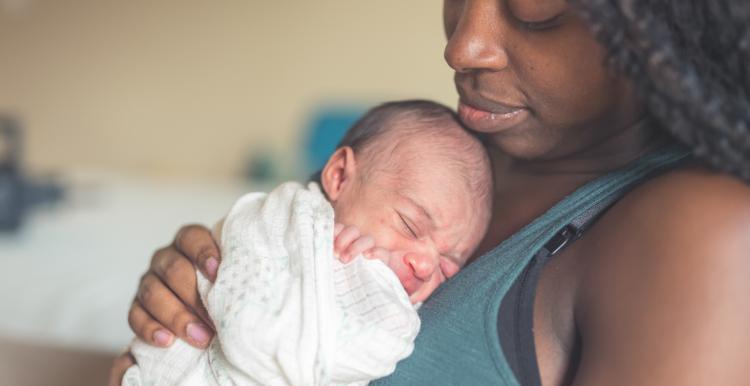Advice on vaccinations for pregnant women

The COVID-19 vaccines available in the UK have been shown to be effective and to have a good safety profile.
These vaccines do not contain live coronavirus and cannot infect a pregnant woman or her unborn baby in the womb.
COVID-19 vaccination in pregnancy
The Joint Committee on Vaccination and Immunisation (JCVI) has advised that pregnant women should be offered COVID-19 vaccines at the same time as people of the same age or risk group.
In the USA, around 90,000 pregnant women have been vaccinated mainly with Pfizer and Moderna vaccines and no safety concerns have been identified. Evidence on COVID-19 vaccines is being continuously reviewed by the World Health Organization and the regulatory bodies in the UK, USA, Canada and Europe.
Pfizer and Moderna vaccines are the preferred vaccines for pregnant women of any age who are coming for their first dose. Anyone who has already started vaccination and is offered a second dose whilst pregnant, should have a second dose with the same vaccine unless they had a serious side effect after the first dose.
Worried about taking the COVID-19 vaccine while thinking of conceiving, pregnant, or breastfeeding?
You should speak to your doctor about the best option for you. If you have been unable to get support from your doctor, contact us and we will send you the advice and information you need to make an informed decision.
Is COVID-19 disease serious in pregnancy?
Although the overall risk from COVID-19 disease in pregnant women and their new babies is low, in later pregnancy some women may become seriously unwell and need hospital treatment. Pregnant women with COVID-19 have a higher risk of intensive care admission than women of the same age who are not pregnant. Women with COVID-19 disease are also 2-3 times more likely to have their babies early than women without COVID-19. Pregnant women with underlying clinical conditions are at even higher risk of suffering serious complications from COVID-19.
Risk factors for pregnant women
If you have underlying medical conditions such as:
- immune problems
- diabetes
- high blood pressure
- heart disease
- asthma
Or if you are
- overweight
- over the age 35
- in your third trimester of pregnancy (over 28 weeks)
- of Black and Asian minority ethnic background
you are at more risk from COVID-19 than women of the same age who are not pregnant
What does this mean for me?
Getting pregnant
There is no need to avoid getting pregnant after COVID-19 vaccination. There is no evidence that COVID-19 vaccines have any effect on fertility or your chances of becoming pregnant.
If you are pregnant
COVID-19 vaccines offer pregnant women the best protection against COVID-19 disease which can be serious in later pregnancy for some women. The first dose of COVID-19 vaccine will give you good protection. You need the second dose to get longer lasting protection. You do not need to delay this second dose. If you have already had a first dose of COVID-19 vaccine without suffering any serious side effects, you can have your second dose with the same vaccine when this is offered. If your first dose was the AstraZeneca vaccine you should also consider the information in this leaflet: COVID-19 vaccinations and blood clotting
Breastfeeding
The benefits of breast-feeding are well known. The JCVI has recommended that the vaccines can be received whilst breastfeeding. This is in line with recommendations from the USA and the World Health Organization.
No vaccines are 100% effective
So it is important to continue to follow current national guidance.
To protect yourself and your family, friends and colleagues, you MUST still:
- practice social distancing
- wear a face mask
- wash your hands carefully and frequently
- open windows to let fresh air in
- follow the current guidance.
Vaccine side effects
Like all medicines, vaccines can cause common side effects.
It may be helpful to make sure you know what to expect after you have the vaccine, especially if you have had your baby or have other children to look after.
Please read the leafet ‘what to expect after your COVID vaccination’
The Royal College of Obstetricians and Gynaecologists (RCOG) and Royal College of Midwives (RCM) have a decision guide and other information you may find helpful COVID-19 vaccines and pregnancy: Guidance for pregnant women
If you would like to discuss COVID-19 vaccination please contact your midwife, doctor, or nurse.
Downloads
If you need this document in a different format or language, please email info@healthwatchgreenwich.co.uk or call 020 8301 8340


